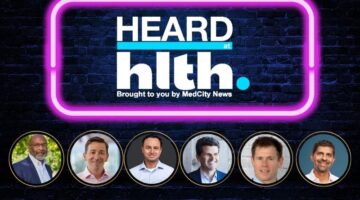It was the year of the fitness gadget at the Consumer Electronics Show, and there were plenty to choose from.
I met several smart entrepreneurs and corporate folks advancing the cause of health innovation on all fronts.
I didn’t meet anyone famous during a “conference transition time” — in line at Starbucks, sharing a table at lunch, on a shuttle ride — but I did have two fabulous conversations. During each of them, when we talked about my work, EHRs came up, without me introducing the subject.

Reducing Clinical and Staff Burnout with AI Automation
As technology advances, AI-powered tools will increasingly reduce the administrative burdens on healthcare providers.
One conversation was in the Asian restaurant of the MGM. The sushi bar is the best place to sit if you need a table for one. The man on my left asked, “Are you here for the show?” From there we covered everything from Montessori schools to living in London to having an end-of-life conversation with your father. He manages loyalty programs for big companies and used to work for a cellphone carrier. His father recently died after living with leukemia for 10 years.
He had taken his father to the Mayo Clinic at one point during his illness. The experience of helping his father manage his finances and medical care perfectly illustrated the silos that health information lives in.
“He had files from his main doctor, files from a specialist at home and then files from the Mayo Clinic, and no one knew about any of the other sources of information,” he said.
I had another “when-is-this-going-to-work” conversation on the shuttle bus to the convention center one morning. That gentleman manages social platforms for corporations. The company handled hundreds of thousands of comments over Black Friday and the following weekend for its clients.

Heard at HLTH 2024: Insights from Innovative Healthcare Executives
Executives from Imagine360, Verily, BrightInsight, Lantern, and Rhapsody shared their approaches to reducing healthcare costs and facilitating digital transformation.
When we started talking about innovation in health, he wanted to know when we were going to figure out electronic health records.
“I have a file of X-rays this thick and I wish they were all in one place,” he said, indicating a 2-inch stack of records.
I asked if he were a closet skateboarder but the answer was motorcycle racing.
Both these guys were usually on the back end of user experience — managing disparate data streams and making sure various stakeholders get what they want.
With health, they were the end user — and they were not happy with the experience.
I can say the same for myself. I’ve been to three distinct healthcare providers over the last 18 months and all of them were transitioning to EHRs. Each time — at the eye doctor, primary care doc and pediatrician — I’ve asked for a copy of my records. Not only did they have no idea how to get me a copy, but it was obvious they had never thought of sharing the information with any patient.
Price comparisons are coming, transparency is getting better. I am generally optimistic about healthcare, but, wow, do we have a long way to go before EHRs can benefit patients as much as they are benefiting doctors and hospitals now.
[Image from flickr user vpickering]








